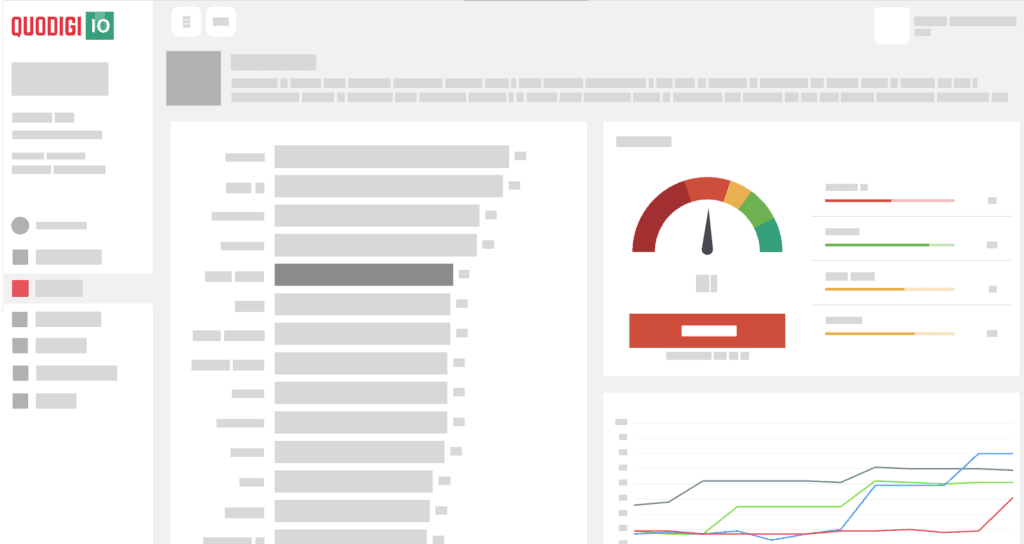Digital communication is now crucial for businesses in today's Internet environment. Before the digital age, communications professionals had to navigate print, TV, radio, and billboards. While these channels are still important, today's professionals can't help but be adept at digital platforms, such as social networks, email, messaging apps, and blogs.
The technological revolution we have been witnessing for a couple of decades now is bringing about several changes in the working world. Among other aspects, communication is certainly the one that has undergone the most important transformation.
We have witnessed the transition from analogue to digital communication and all the consequences of this process. In this article we are going to analyse together how this evolution took place and why it is so important to include this new way of communicating in your business today.
Some research on digital communication
According to the UNESCO Commission on Sustainable Development1, the majority of the world's population now has access to the Internet and that percentage continues to grow. In 2019, 54.8% of all households in the world had access to the Internet. In this context, companies are doubling down on strategies to interact with these users.
Also, a study by the Harvard Business Review2 reported that 73% of consumers use more than one channel to research potential purchases. The average user today has many more options than the average user thirty or forty years ago to inform themselves with a view to purchase. It is much easier to observe, compare and finally, choose.
To be successful in digital communications, marketers, public relations representatives and community managers need tools and techniques that allow them to connect with consumers in the most effective way. With the right resources, communications professionals can create strategic campaigns capable of:
- reach the target audience
- offer personalized experiences.
But what does digital communication consist of?
All very clear so far. But in simple terms, what is meant by digital communication? Here's a possible definition: digital communication is the process of connecting with people through online channels. This could involve:
- launching social media campaigns
- distribution of e-mail newsletters
- the execution of advertising banners
- the publication of advertising articles.
eBay founder Pierre Omidyar said on Bloomberg Businessweek: "We have technology that, finally, for the first time in human history allows people to really maintain important connections with a very large number of people."3
For this reason, most organizations today use a wide range of online channels (website, mobile chat, blog, social media...) to connect with:
- current and future customers
- employees
- other stakeholders.
From analogue to digital communication
Digital transformation has had a huge impact on the organization of companies. Organizations, over time, have begun to integrate new technologies into their processes. In this regard, let's look at three interesting developments where digitization has paved the way for new and efficient forms of communication:
- Digital Acceleration: For a 21st century company, being online is a fundamental, and so is targeting the audience you want to reach through hypergetargets. A high-performance digital strategy is a must for optimal results.
- Data Management: New techniques make data more visible than ever before. In this way, customer data platforms generate valuable information about a customer or prospect's behavior. Companies can use these invaluable resources to calibrate their marketing strategies.
- Hybrid eventsproduct launches, sales seminars or rebranding are now experienced live and distributed online in real time. Especially at a time like the present, hybrid events could prove to be safe and efficient alternatives to purely physical events.
Why choose digital communication?
Businesses nowadays can use digital communication for a variety of reasons, including:
- Building your brandcompanies can create a brand image for a startup or transform the image of an established business that is perhaps moving in a new direction.
- Generate awareness: Companies can use a wide network to let potential customers know about their products, services and values.
- Driving conversions: Campaigns can inspire customers to move through the marketing funnel (the theoretical path taken by the customer during the process of buying a good or service) and purchase products, online or offline.
- Creating the customer experience: campaigns can be customized to create unique experiences through targeted social campaigns, one-to-one messaging apps or live video.
- Provide customer service: Community managers can answer questions in real time to solve problems and continue to keep their customers satisfied by improving their services.
- Managing risk: companies can conduct damage control by improving brand reputation following any incidents.
- Providing entertainment: marketers can offer their audience a higher amount of liked content, such as videos or funny articles.
- Educating consumers: companies can address customers' most sensitive issues and help them improve their lives by publishing informative digital content.
The fundamental characteristics of a digital communicator
There are certain skills that an online communication professional cannot do without. In order to achieve success in digital communication, one must possess the following qualities:
- Flexibility: Those who thrive in digital communication tend to be highly adaptable people. In fact, priorities in this discipline often change rapidly. Knowing how to easily adapt to changes is a must.
- Constant commitment to learning: Continuing education is important to stay on top. It's impossible to predict future changes, but the most successful digital communications professionals engage in lifelong learning to be ready for rapid changes.
- A passion for storytelling: Digital communication is often rooted in the art of persuasion. One of the best ways to persuade your audience is to create a strong narrative.
- EmpathyTo become a good communicator, it is important to have a strong interest in your audience and what characterizes them. Once you are able to put yourself in the shoes of the people you are trying to influence, you can make more meaningful and effective connections with them.
- Curiosities: curiosity in this profession is key. The best digital communication professionals are those who want a deeper understanding of people, processes and communication channels.
Digital strategy
A digital strategy should be an integral part of an organization's communication strategy. If you don't have one, you should consider developing it. To do this, it is very helpful to involve the organization's staff in the process.
For example, you can organize a brainstorming session where your colleagues can share their creative ideas. Relying on colleagues' input is important, because this way they can feel responsible, even in a small way, for the success of the final product.
A good digital strategy is very useful to:
- Ensure that communication efforts contribute to the goals and mission of the organization
- Planning and distributing resources
- Achieve communication goals.
Digital communication is now one of the most commonly used modes of communication in the business scenario and beyond. Nowadays, organizations generally rely on this mode for all their business communications. There are various reasons why they prefer to use this type of communication to the traditional analog communication. Among them, we definitely find the fact that a single individual is able to communicate digitally, which also saves manpower, making it one of the cheapest methods of communicating. In addition, digital communication is extremely fast. Information can reach the recipient in a fraction of a second. In an increasingly technological world, digital communication is the present and future of business.




